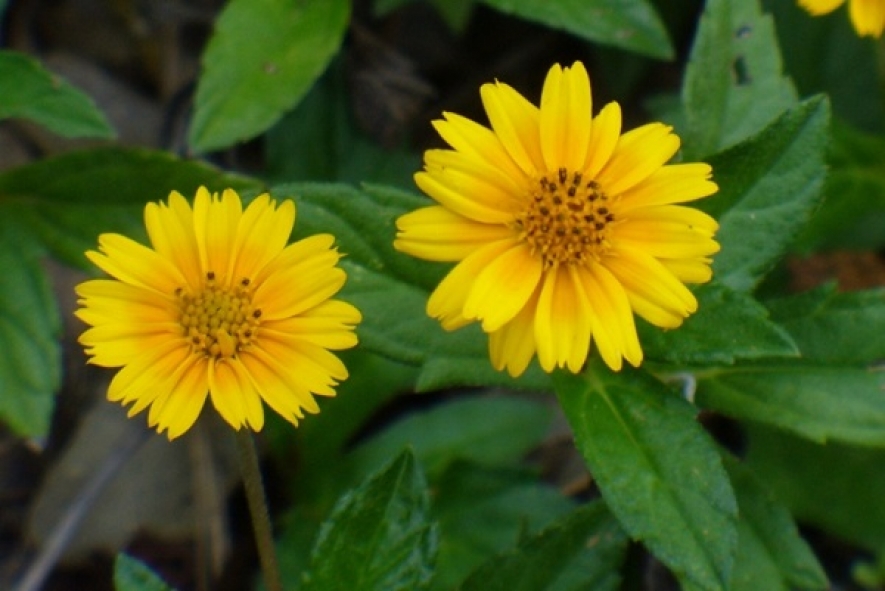The Chairman and the members of the Green Practices Committee (GPC) and members of the Nature Club also participated in the event. S. trilobata popularly known as kaha karabu, is one of the world’s 100 worst noxious weeds. This plant was introduced to Asia from the tropical parts of Central and South America. The aggressive growth habit, tolerance to environmental stresses, and the ability to synthesize allelochemicals have contributed to the ability of S. trilobata to rapidly invade and cause significant damage to natural ecosystems. It was first introduced to Sri Lanka as a cover crop in tea plantations in early 1980s from India as the plant has the ability to control soil erosion.
S. trilobata was introduced to the University of Kelaniya as an ornamental plant. Both fresh and dry plant parts of S. trilobata have an allelopathic effect on seed germination and it has an anti-annelid effect on earthworms (Pheretima spp.). The GPC with the support of the university staff and undergraduates expect to remove all noxious plant species found in the university premises as a part of its programme to achieve environmental sustainability. (KH)



















